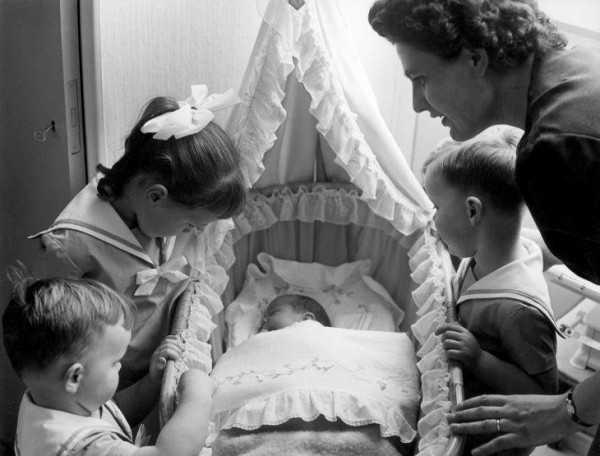Naming Laws from Around the World
Many countries around the world have their own set of laws or customs for naming children. The reasons behind these policies varies widely from country to country.
Image: Nationaal Archief, flickr
Check out these interesting naming laws from around the world:
ICELAND
Parents in Iceland may only choose names approved by the Icelandic Naming Committee. The Personal Names Register includes about 1,800 approved Icelandic names for each gender. Girls should be given female names and boys should be given male names. The name must fit Icelandic grammar and pronunciation rules. Thus, a name like “Harriet” would be banned because it can’t be conjugated in Icelandic. While a name like “Caroline” would not be allowed because the letter “c” is not part of Iceland’s alphabet.
Another rule: the name should not cause the child embarrassment.
GERMANY
German names must be approved by the local registration office, called Standesamt. The name must indicate the child’s gender and must not negatively affect the well being of the child. It also cannot be a last name or a product.
PORTUGAL
Portugal has an 80-page list of approved and unapproved names that parents can choose from. The name must also reflect the gender of the child, so no gender-neutral names are allowed. In addition, the child’s chosen name must respect Portuguese spelling and phonetics.
Exceptions can be made if one of the parents is not Portuguese. In these cases, the child may be given a non-Portuguese first name as long as it conforms to the naming laws of the parent’s country.
CHINA
Although it is advised for parents to name their children so that others can easily read their names, there is no strict restrictions on the complexity of Chinese characters that can be used. However, with over 70,000 characters in the Chinese language, only a fraction are represented by computers. Therefore, naming a child is limited to the characters that are machine readable.
JAPAN
Similar to China, Japan has a certain set of characters that can be used in a child’s name. Only official kanji may be used to ensure the names can be readily written and read by those literate in Japanese. Inappropriate names, such as “Akuma” meaning “devil,” are also banned.
NORWAY
Noway has had a history of strict naming laws that are intended to protect children from names that sound or look strange. Parents are also not allowed to give a first name that is traditionally a last name.
Another interesting point about Norwegian naming laws, if someone wanted to change their surname to a name held by less than 200 people, the person must ask everyone with that surname for permission before they are allowed to change it.
DENMARK
Under Danish law, parents are limited to a list of about 7,000 names. If parents want to choose a name not on the list, they would have to get approval from the local church, followed by a review by government officials. Names must also indicate gender and not be “unusual.”
USA
While the U.S. has very few laws governing names, there are a few state laws that place some restrictions on what parents can name their children. Some states limit the number of characters that can be used due to limitations in software, while others ban the use of numbers or pictograms for similar reasons. Other states ban the use of obscenities. In California, only the 26 letters of the English alphabet may be used. Therefore, the use of diacritical marks in names, such as in José, are not allowed. Most people will get around the restriction by using diacritical marks informally.
On the other hand, Kentucky has no naming laws, so parents can let their imaginations run free!
Do you have any strange names in your family tree? Share them with us in the comments below!








 Genealogy Discussions
Genealogy Discussions Genealogy Projects
Genealogy Projects Popular Genealogy Profiles
Popular Genealogy Profiles Surnames
Surnames The Geni Blog
The Geni Blog The World Family Tree
The World Family Tree